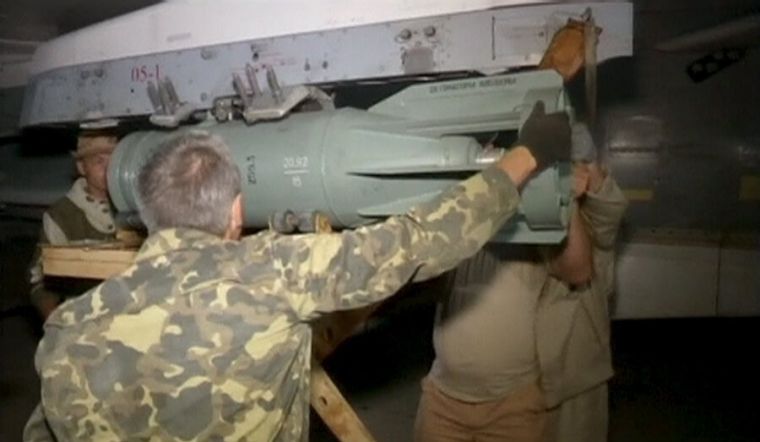US, allies protest Russian raids as Iranian troops arrive in Syria to back up Assad

In a further escalation of the Syrian civil war, hundreds of Iranian troops have arrived in Syria to join a major ground offensive backed up by Russian armour and air power in support of President Bashar al-Assad's government, sources said on Thursday.
As the Iranian troops arrived, Russian jets screamed into the sky once again to conduct a second day of strikes.
Moscow insisted it was targeting Islamic State positions. However, the commander of the rebels being trained by the US Central Intelligence Agency said their camps were the ones hit by the Russian warplanes, according to Reuters.
Russia and the United States, together with their respective allies, thus found themselves on a collision course for the first time since the Cold War.
On Friday, the United States, Britain, France, Germany and Gulf Arab allies Turkey and Saudi Arabia issued a joint statement calling on Russia to stop attacking Syrian opposition forces and target ISIS and other Islamist militants instead.
Expressing "deep concern," the allies said Russia's airstrikes on non-ISIS targets constituted a "further escalation" of the conflict and would only fuel more extremism.
"We express our deep concern with regard to the Russian military build-up in Syria and especially the attacks by the Russian Air Force on Hama, Homs and Idlib since yesterday which led to civilian casualties and did not target Daesh," it said, referring to the pejorative Arabic name for ISIS.
Moscow denied the charge, saying the Russian air force conducted "surgical strikes" on ISIS' military equipment, communication hubs and fuel depots.
But US Secretary of Defense Ash Carter reportedly insisted that the Russian airstrikes did not appear to be targeting areas held by ISIS forces.
Russia's defence ministry late Wednesday said it had carried out 20 airstrikes, according to The Associated Press. By comparison, the US conducted only one airstrike over Syria the same day.
With the entry of Iranian troops to join Russian forces in backing up Syrian President Bashar al-Assad—who is also supported by Lebanese Hezbollah allies and Shi'ite militia fighters—analysts expressed fears that the conflict could spiral out of control, involving the world's biggest military powers.
Adding more confusion into the mix, Prime Minister Haidar al-Abadi of neighbouring Iraq, also appears to be in support of the Russian military action, saying he would be open to Russian strikes against ISIS targets in his country as well.
As it is, the United States and Russia are now engaged in combat over the same country for the first time since World War II, Reuters noted. However, unlike in World War II where the United States and Russia considered themselves allies in the war against Nazi Germany, the Syrian battlefield could find the two powers on opposite sides of the conflict.











